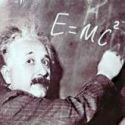
King Wenceslas and his page doing good in Bohemia
Clued-up about Christmas Songs and Carols? Try this quiz and complete the missing words!
- _____ King Wenceslas looked out / On the Feast of Stephen
- O _____ town of Bethlehem / How still we see thee lie
- O come, all ye _____ / Joyful and triumphant
- Hark, the herald angels _____ / ‘Glory to the newborn King’
- Once in royal David’s _____ / Stood a lowly cattle-shed
- Rudolf the red-nosed _____ / Had a very shiny nose
- Jingle bells, jingle bells, jingle all the way / Oh what fun it is to ride in a one-horse _____ sleigh
- _____ the halls with boughs of Holly / Fala-la-la-la la-la-la-la!
- God rest you merry _____ / Let nothing you dismay
- Ding dong! merrily on _____ / In heaven the bells are ringing
Didn’t get them all? Scroll down for the answers!
↓
↓
↓
↓
↓
↓
↓
↓
↓
↓
- Good King Wenceslas looked out / On the Feast of Stephen
- O little town of Bethlehem / How still we see thee lie
- O come, all ye faithful / Joyful and triumphant
- Hark, the herald angels sing / ‘Glory to the newborn King’
- Once in royal David’s city / Stood a lowly cattle-shed
- Rudolf the red-nosed reindeer / Had a very shiny nose
- Jingle bells, jingle bells, jingle all the way / Oh what fun it is to ride in a one-horse open sleigh
- Deck the halls with boughs of Holly / Fala-la-la-la la-la-la-la!
- God rest you merry gentlemen / Let nothing you dismay
- Ding dong! merrily on high / In heaven the bells are ringing







 To many people’s surprise, in ‘normal’ (i.e., non-mathematical) English, the preposition used here is to, not of or for. So it’s the solution to a problem. Similarly, it’s the answer to a question or problem. However, when solution refers to the act of solving, then it can be followed by of:
To many people’s surprise, in ‘normal’ (i.e., non-mathematical) English, the preposition used here is to, not of or for. So it’s the solution to a problem. Similarly, it’s the answer to a question or problem. However, when solution refers to the act of solving, then it can be followed by of:
 In an interview article, it’s important that readers are never in any doubt as to who said what: is the interviewer (or narrator) speaking, or are these the words of the interviewee? And the problem naturally gets more complex if several people are being interviewed. One of the more subtle ways writers in English guide their readers through an interview is by using punctuation.
In an interview article, it’s important that readers are never in any doubt as to who said what: is the interviewer (or narrator) speaking, or are these the words of the interviewee? And the problem naturally gets more complex if several people are being interviewed. One of the more subtle ways writers in English guide their readers through an interview is by using punctuation.


